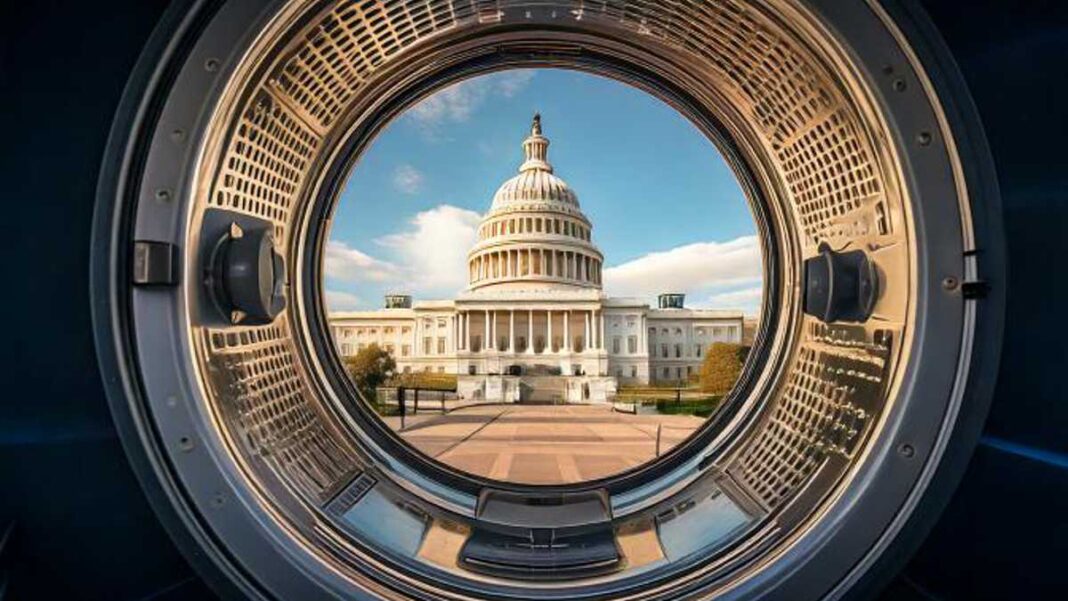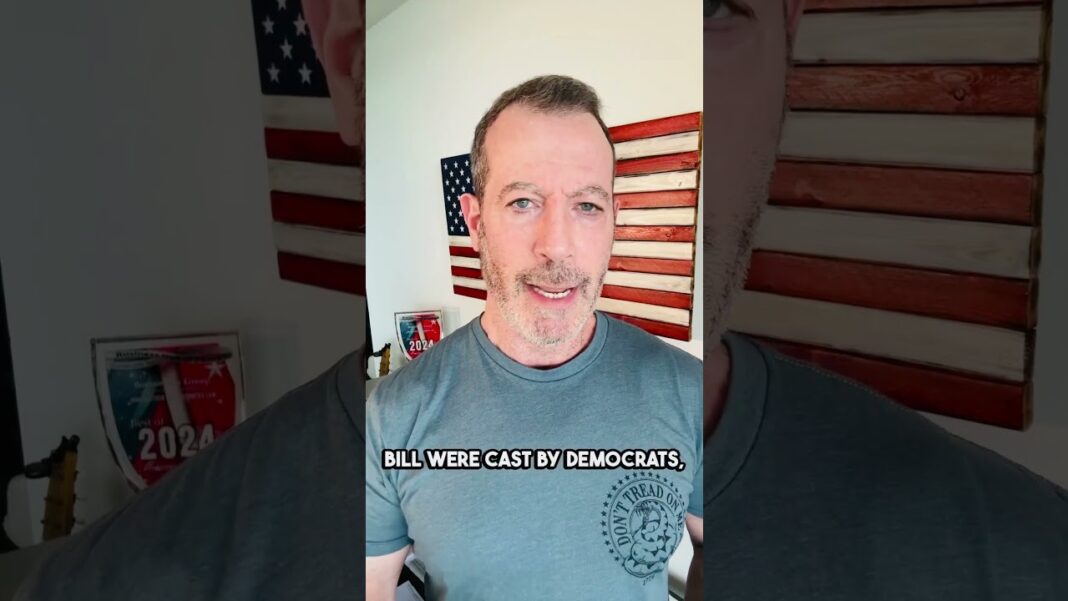The purported goal of the Department of Government Efficiency (“DOGE”) is to reduce the size and spending of the federal government substantially. However, this goal will not be achieved by its apparent approach of making thousands of cuts in funding and staff and by combining agencies for efficiency. The federal government exercises massive power over the nation. It is also clear that reducing it will require Congress to devolve many of its domestic powers into the states. Without eliminating the laws that grant the federal government its power, it will regrow to its present form.
The federal government is similar to a flatworm that can grow back all body parts, including its heads, from a single part of its body. Flatworms can multiply by being split into pieces. The federal government will have the power to regrow as long as the laws remain in effect, even if not funded.
The fundamental flaw is the federal government is too big to be managed. It has amassed significant power and controls so many political, social, and economic aspects of society that it can no longer distinguish its essential functions from trivial pursuits, such as regulating local school lunch menus while allowing the national debt to skyrocket. Moreover, by making state and local governments mere subjects of federal domination, it destroys federalism, resulting in a mismatch of skills and responsibilities at all levels of government.
For the federal government to be effective, it must be drastically restructured by significantly devolving its domestic powers to the states.
Prior DOGE-type commissions have made thousands of recommendations. Some, especially those identified by the Government Accounting Office, have resulted in tens of billions in savings. Several DOGE-type commissions sought more enforcement authority to eliminate waste, fraud, and abuse (“WFA”). Congress provided presidents with the necessary powers to identify and catch defrauders. Unfortunately, presidents and their massive bureaucracies have not aggressively used those powers, so the inefficiencies remain an excuse to start another DOGE-style commission.
Polls show only 20% of citizens trust the U.S. federal government to do what is right most of the time. Almost half of Americans believe the nation is as close to the edge of a Civil War as it was in 1861.
This lack of trust should concern every American since all will live with the consequences of the federal government’s massive debt, regulatory sclerosis, continuous wars, open borders, and a declining ability to protect the nation. In our complex society, the coordination and cooperation of all levels of government are needed to make society function efficiently for its people. To effectively manage the federal government, Congress, not a DOGE, must embark on transferring many of its current domestic powers to the states.
A joint House/Senate committee should analyze the overall efficiency and effectiveness of the federal/state relationship in delivering all government services. It should determine which powers are truly federal and which can be better implemented by state and local governments. When this process is complete, Congress should present the president with a plan that restructures the federal government by transferring designated federal domestic powers to the states.
It’s time the federal government stopped worrying about accumulating power and control over citizens and focused on how the federal, state, and local governments can best deliver the services needed by citizens, regardless of which level provides that service.
The federal government is de facto bankrupt. Within a decade, it will be forced to reduce or eliminate the trillion in subsidies it gives state and local governments to implement over a thousand programs the federal government lacks the constitutional authority to implement. The loss of federal payments will result in states refusing to implement most federal programs. Without the assistance of the states, many federal programs will disappear. The states will then reorganize their budgets by defunding what they had been paying to support federal programs that were not wanted by their citizens. With the money saved, the states will fund only those programs their citizens want.
The federal government and the states had a workable power-sharing relationship until the Great Depression. Moreover, until the early 1900s, the collective budgets of the states were larger than the federal government, and states managed most of the nation’s domestic policies. Since the 1970s, there has been a massive explosion of federal power, evidenced by the fact that 97% of the national debt has been accumulated under the last seven presidents. For the federal government to be a viable governing entity again, it must shrink itself to perform its essential responsibility of protecting the nation.
If it is constitutional for the federal government to accumulate power by taking it from the states, it is constitutional for the federal government to return many of these domestic powers to the states.
Devolving power to the states is possible since the U.S. federal government is not the United States, although it acts as its ruler. Instead, it is an instrumentality of the people established to manage their governmental affairs for the benefit of the people. None of our federal officials are granted power as individuals. They are merely volunteers elected as representatives to temporarily manage our government. If it acts in this capacity, it will distribute its power so that the government closest to the people can provide the services needed by the people where they live.
Unfortunately, since the federal government’s creation, the individuals acquiring federal power have skillfully blended the powers of the three federal branches into two competing power structures not established by the Constitution. These power structures are called political parties. As such, citizens are no longer protected by the Constitution; they are protected by Democrats or Republicans, depending on which party controls the government apparatus.
In addition to state and local governments being forced into servitude to an ever-expanding federal government, Congress falls deeper into irrelevancy since it has delegated many of its most important powers to the president and does not seem to have the skills or courage to reclaim them. This situation presents Congress with a dilemma. It can remain irrelevant to an all-powerful president or use its spending, borrowing, legislative, and impeachment powers to reign in Executive overreach.
Devolving many domestic federal powers to the states may be the only alternative governing mechanism to keep the Union together. It will allow citizens of the respective states greater freedom to live under policies reflecting values closer to where they live rather than national values imposed on them by an overbearing, distant government and powerful national advocacy groups that do not understand or care about the needs of local citizens.
In this new governing structure, the federal government would focus on its essential responsibilities to protect the nation, manage activities that directly (not incidentally) impact interstate commerce, defend the dollar’s value, ensure a sound banking system, and reduce the national debt. The states would manage most of the nation’s domestic policies, e.g., crime and punishment, labor and environmental standards, energy production, abortion, economic development, and permitting. This shift could create a more efficient and responsive government, giving citizens hope for a better future.
In the final analysis, the citizens of the U.S. must understand they are not just bystanders in their government’s actions. They are the ones who elect the individuals who manage their government. The citizens of the U.S. are now confronted with an ‘either/or’ situation. Either citizens elect a government that limits its powers, regardless of political affiliation, or they must accept living under an all-powerful federal government that is organized around corruption, deception, and eventually brutal tyranny.
Promising that cutting WFA is a cure to federal mismanagement is a delusion perpetrated by individuals wanting to acquire more federal power and benefits from the government. Only by devolving most domestic powers to the states will the federal government have the time and resources to focus on maintaining the nation’s security.
Part Five – Utah Land Claim, Put Up or Shut Up – Time for DOGE to Shrink Government
Part Three – DOGE: It’s Enforcement Stupid, Not Another REPORT
Part Two – The Many Efforts by Predecessors of DOGE to Root Out WFA.
Part One – When DOGE Meets Political Chaos
William L. Kovacs, author of Devolution of Power: Rolling Back the Federal State to Preserve the Republic. It received 5 stars from Readers’ Favorite. His previous book, Reform the Kakistocracy, received the 2021 Independent Press Award for Political/Social Change. He served as senior vice president for the U.S. Chamber of Commerce and chief counsel to a congressional committee. He can be contacted at wlk@ReformTheKakistocracy.com
.








